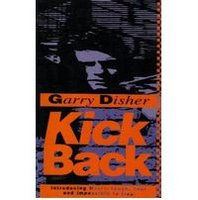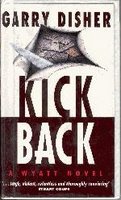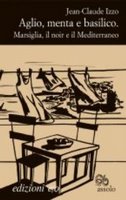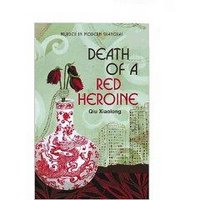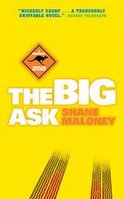When red was noir -- "A Case of Two Cities" by Qiu Xiaolong
 A Case of Two Cities is the fourth of Qiu Xiaolong's novels about Inspector Chen Cao of the Shanghai Police Bureau. Like its predecessors, including the superlatively good Death of a Red Heroine, it offers rueful portraits of social upheaval in a China that embraces capitalism with the morality of Tammany Hall, the business sense of Al Capone, and the tender mercies of Margaret Thatcher.
A Case of Two Cities is the fourth of Qiu Xiaolong's novels about Inspector Chen Cao of the Shanghai Police Bureau. Like its predecessors, including the superlatively good Death of a Red Heroine, it offers rueful portraits of social upheaval in a China that embraces capitalism with the morality of Tammany Hall, the business sense of Al Capone, and the tender mercies of Margaret Thatcher.Its themes may resonate with fans of American crime fiction of the 1930s and 1940s, a time when municipal corruption was shocking enough to interest crime novelists. Here, a Shanghai official with unsavory connections addresses Chen:
"(P)eople know a lot about you, our poet chief inspector. Someone just told me about your hongyan zhiji, not only in Beijing, but in the United States."
It came like a seemingly effortless blow delivered by a tai chi master: we know everything about you, so you’d better watch out."
Hongyan zhiji, Qiu tells us, is "a classical literary term meaning an attractive female friend who appreciates and understands you: not necessarily a girlfriend, but definitely with such a connotation – an archetypal dream for lonely, unappreciated scholars ancient China." (Qiu is a poet and a translator of Chinese poetry, and his protagonist, Chen, shares those literary interests and draws inspiration and warning from them.)
Here’s Chen describing his preparation for the visit with the menacing official:
Mang went out of his way, providing inside information about the area’s potential: a list of the properties bought by senior Party officials. Such purchases were an unmistakable message that the property value would soon rise because of city development plans known only to those officials.
As mentioned above, Qiu shares an interest in municipal corruption with certain American crime authors, but he tempers their burning, righteous anger with an understanding of the ways of the corrupt. He notes the understandable desire of talented, ambitious Communist Party functionaries to break free of party shackles and go into business for themselves, even as he writes with horror of their corruption. And he has great sympathy for those left behind by China’s unstoppable economic and political changes.
Inspector Chen’s China reminds me in a small way of the world of American newspapers, of which I am a part, at least for a few more hours. Publishers struggle mightily to cope with the challenges they face in changing markets – and they use their struggles as an excuse to intimidate, threaten and demoralize their workers. Change is happening, and it may be inevitable. But the inevitability of change does nothing to ease the pain of those who suffer from it.
Peace!
© Peter Rozovsky 2006
Technorati tags:
Qiu Xiaolong
Inspector Chen






